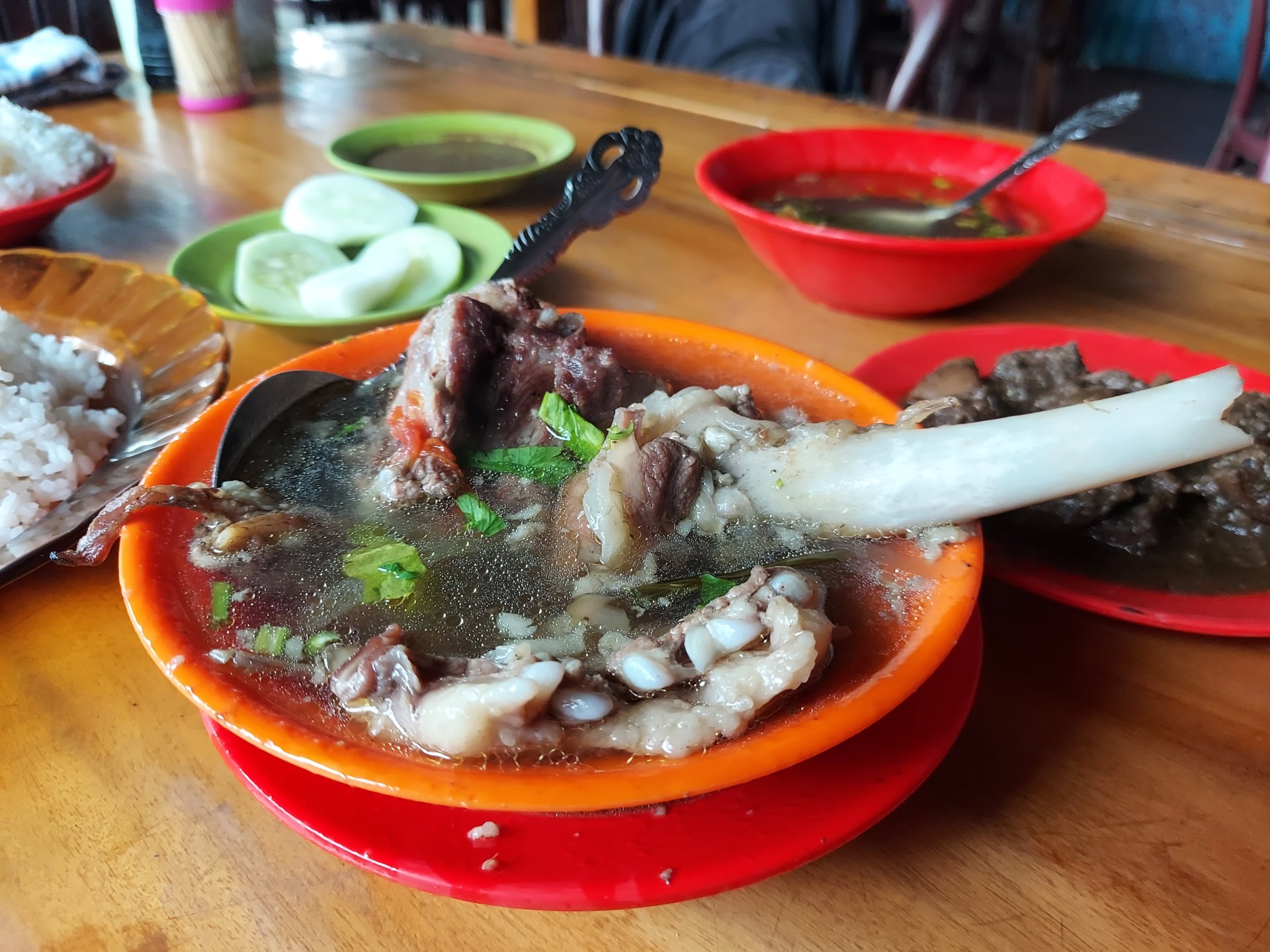Medan, Indonesia – Lina Ginting, the owner of Mechio Restaurant, does such a roaring trade in dog curry, barbecued dog and dog soup that she was able to put her two children through private school.
But these days, Ginting, whose restaurant has been in operation for the past 12 years, is worried that her sole source of income could soon be taken away.
After crackdowns on the sale of dog meat by local authorities in other parts of Indonesia, restaurant owners like Ginting are concerned that a nationwide ban could be coming next.
“Myself and other dog meat sellers have already discussed it, and we would go and protest outside the mayor’s office if they made the sale of dog meat illegal here,” Ginting told Al Jazeera.
“I would not be able to accept a ban. If I wasn’t allowed to sell dog meat any more, where would I get my money from?”
Last month, authorities in North Sulawesi announced a ban on the slaughter and sale of dog and cat meat at the Tomohon “Extreme” Market, which has long had an infamous reputation as both a grisly tourist destination and a symbol of animal cruelty.
Caroll Senduk, the mayor of the city of Tomohon, announced the “ground-breaking” ban after years of campaigning by animal welfare advocates who argued the trade was unnecessarily cruel and risked spreading rabies.
Other regional and local authorities have announced similar plans, with officials in Jakarta currently in the process of drawing up local legislation to outlaw the trade.
Activists hope such a move by the capital will ultimately usher in a full nationwide ban.
In Medan, where Ginting lives, the authorities have yet to enact a blanket prohibition on dog meat, although mayor Bobby Nasution, who is also the son-in-law of Indonesian President Joko “Jokowi” Widodo, issued a circular in 2022 banning the “commercial sale” of dog meat in markets.
To get around the ban, Mechio Restaurant, which typically slaughters about 10 dogs each day, sources its meat through a distributor or members of the local community who want to sell directly to the restaurant.
Ginting’s restaurant also takes former pets, such as Bimbim, a mongrel whose owner recently brought him in for sale after deciding he had become too big to keep at home.
Ginting said former pets are especially prized as they are usually fatter and juicier than strays.
“We love dogs, but we have to make a living,” Ginting said.
Ginting’s husband, Mion Sitepu, said that not only is dog meat delicious, it is also a traditional delicacy in Sumatra, where it is primarily consumed by the Batak people, a predominantly Christian ethnic subgroup indigenous to the island.
“If it wasn’t [delicious], then how have I been able to make a living from it every day for the past 12 years?” Sitepu said.
The trade is nonetheless controversial, in large part due to concerns about the spread of rabies and other diseases.
Rabies is endemic in Indonesia and found in most provinces across the country, including all six provinces in Sulawesi.
Lola Webber, the director of campaigns at Humane Society International, described North Sulawesi as “an epicentre of Indonesia’s cruel and dangerous dog and cat meat trade”.
“The cruelty is obscene, and the public health risks from open slaughter and contaminated meat are unparalleled. It is a huge victory for animal welfare and public safety that never again will dogs and cats be bludgeoned and blowtorched at Tomohon Market, and we hope this unprecedented agreement will set the standard for other markets and leaders to follow,” Webber said.
Despite dog meat’s deep cultural roots in North Sumatra, not everyone involved in the trade is opposed to its prohibition.
At Galilea Restaurant in Medan, Obet Ginting serves pork, chicken, fish and dog – despite describing himself as a dog lover at heart.
“Dogs are like our friends. They help us and do important jobs like guarding our homes. They are such kind animals,” Ginting, who is not directly related to Lina Ginting, told Al Jazeera.
Ginting said he would be able to understand a dog meat ban in Indonesia as long as it was nationwide and fairly applied to everyone, rather than specific areas like Tomohon and Jakarta.
“Some people don’t want to eat here because we sell dog meat, and they don’t like it or support its sale. They think our other food will be contaminated by the dog meat,” he said.
“We take great care not to mix our meats, but if all dog meat was outlawed in Indonesia, I would support it as it would be clear for all patrons.”
